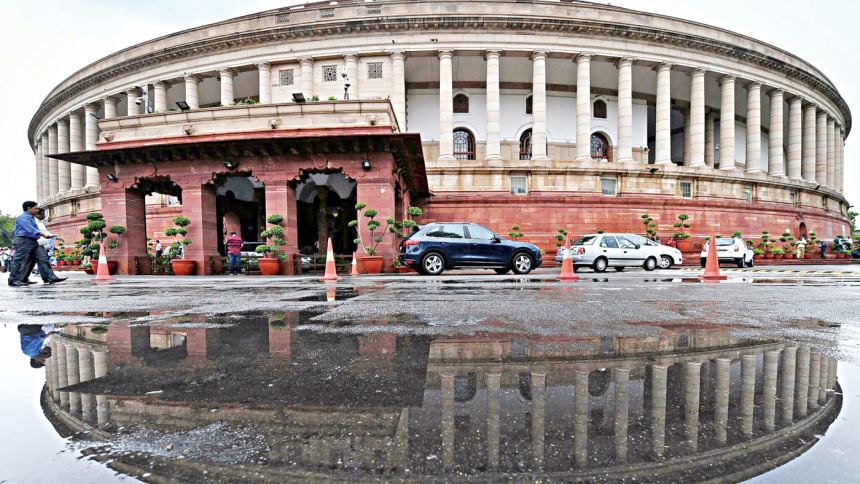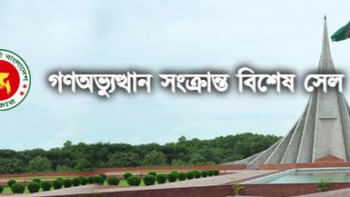A stormy parliamentary session and clouds over Indian democracy

It rained protests and disruptions by a united and unrelenting opposition every day during the nearly month-long monsoon session of the Indian parliament, raising serious concerns about Indian democracy.
The sittings of both the Lok Sabha and the Rajya Sabha were cut short by a couple of days ahead of their schedule, as the entire session remained to be hit by opposition protests over the alleged use of Pegasus spyware, central farm laws and other issues. The opposition repeatedly demanded a statement from the government on the Pegasus spyware issue, while the ruling party stonewalled any discussion on it in the House.
In terms of productivity, the monsoon session saw the lowest figure of the current 17th Lok Sabha which functioned for slightly over 21 hours against the stipulated 96 hours. The Rajya Sabha registered a slightly better record of functioning for 28 hours, out of the available 97.30 hours.
The session saw unsavoury scenes of opposition lawmakers snatching papers from a minister, tearing and flinging papers and files at the presiding officers of both the Houses, suspension of a Trinamool Congress member-cum-doctor for a greater part of the session, and a similar action against six MPs of the party for a day for "unruly" behaviour. The last day's session in Lok Sabha was no less unedifying—opposition lawmakers sitting and standing on the table of parliamentary officials. On their part, the opposition accused the government of bringing in "outsiders" who are not part of parliament security to manhandle their lawmakers. Seven ministers released a video showing a woman marshal of parliament surrounded by opposition MPs, and alleged threats made by the opposition for bringing in bills for passage.
Outside the parliament, one saw opposition lawmakers cycling their way into the parliament complex protesting fuel price hikes—not once but twice—and Rahul Gandhi leading the Congress tractor march to oppose farm legislation. What comes out through all these visuals and trading of charges between the ruling party and the opposition is the shrinking of space for dialogue and democracy.
It was just for a day that the opposition pressed the pause button on their protests and disruptions when the parliament gave its stamp of approval to the passage of a constitution amendment bill that restores the power of the states—which was taken away by a Supreme Court ruling in May—to come up with their own lists of Other Backward Classes (OBC) for social welfare schemes and other benefits. It was the only instance in the just-concluded monsoon session when the ruling party and the opposition buried their differences and came together to pass a piece of legislation full of political significance to woo a vital section of the electorate. Clearly, neither the opposition nor the treasury bench wanted to be seen as obstructing a law that relates to OBC. It shows how parties across the spectrum can come together to take care of their political and electoral interests. Barring the bill relating to OBC, all other bills were passed by the House without the opposition's participation in debates over them.
The monsoon session has raised serious structural issues about democracy in India. One, it has been suggested that the ruling party has a bigger responsibility to take the opposition on board in ensuring a smooth parliament session and passage of legislation after threadbare discussion. This issue had also come up in the winter session of parliament in 2010 when the Congress-led United Progressive Alliance was in power and protests by the BJP, then the main opposition, led to the washout of the entire session. (The saffron party had demanded the formation of the Joint Parliamentary Committee to probe alleged graft in the 2G telecom spectrum allocation case.)
Secondly, it has been also suggested that the government could have referred some of the key bills passed in the session with the help of its commanding—some say "brutish"—majority to parliamentary select committees, which are also a forum of parliamentary oversight. It must be noted that the ruling party cannot be faulted for securing a commanding parliamentary majority nor is it mandatory to refer bills to select committees before being tabled in the House. But it certainly is the responsibility of the ruling party to ensure the opposition is on board. At the same time, the opposition should introspect whether it is right in being fixated on one particular issue, however important it is.
Without in any way lessening the importance of committees as an important adjunct of the institution of parliament, discussions in such committees, which can be time-consuming at times, do not necessarily translate into consensus in the House. Referring bills to select committees should not be used as a convenient method of avoiding taking hard decisions or putting issues on the backburner.
On the other hand, India's ruling party should not view the opposition as a "disrupting" force or an adversary. It has been rightly argued that the parliament is not just a forum for passing bills but also one for listening to and accommodating the opposition's views and concerns irrespective of its numerical strength. Passing bills in parliament without a substantive debate where multiple views are heard is not illustrative of a healthy and functional democracy.
The incidence of disruption of parliamentary proceedings due to sustained opposition protests is nothing new in India. But what happened in this monsoon session has not been seen in recent years. This has made democracy-watchers quite worried. India's democracy has weathered many a storm in the past, and one hopes this too would pass.
Pallab Bhattacharya is a special correspondent of The Daily Star. He writes from New Delhi, India.


 For all latest news, follow The Daily Star's Google News channel.
For all latest news, follow The Daily Star's Google News channel. 



Comments